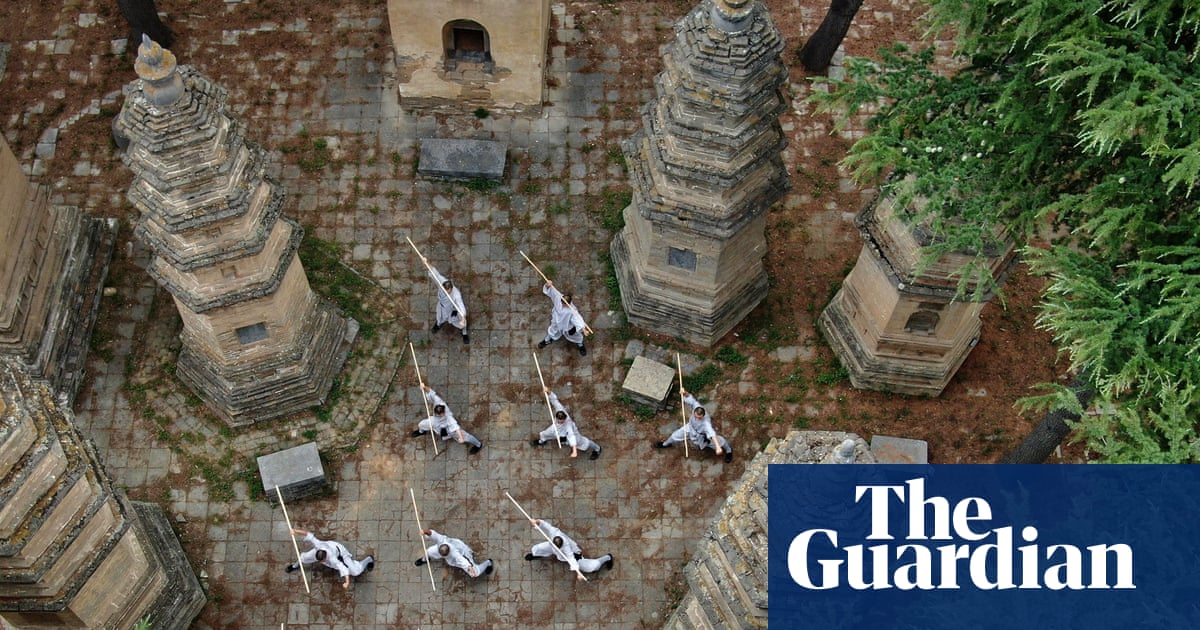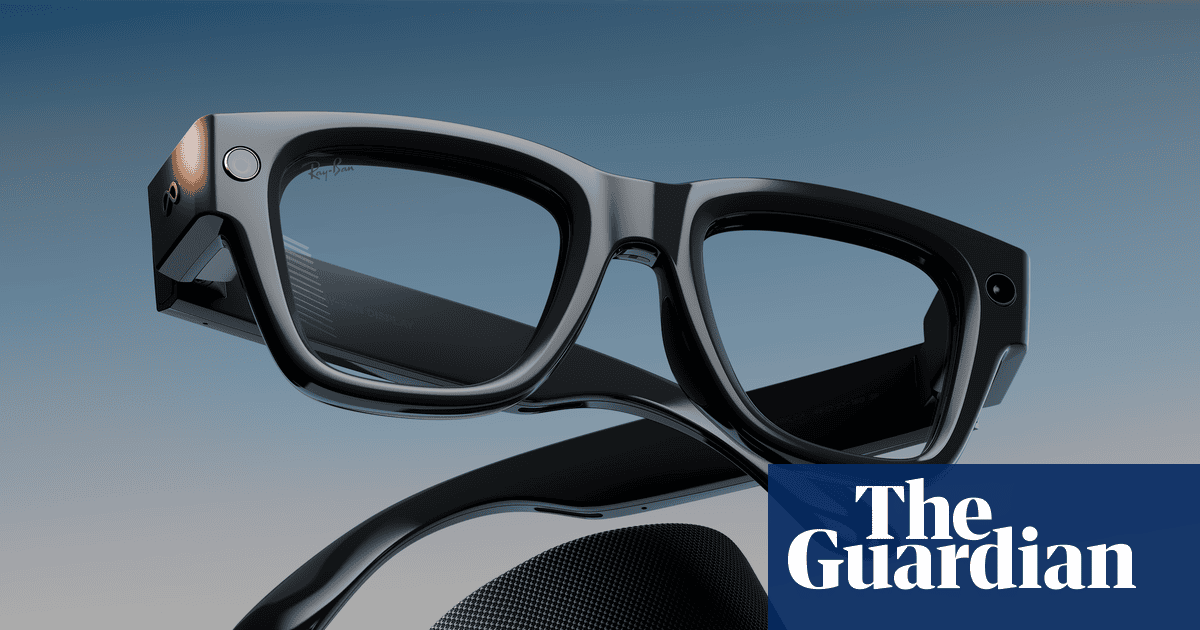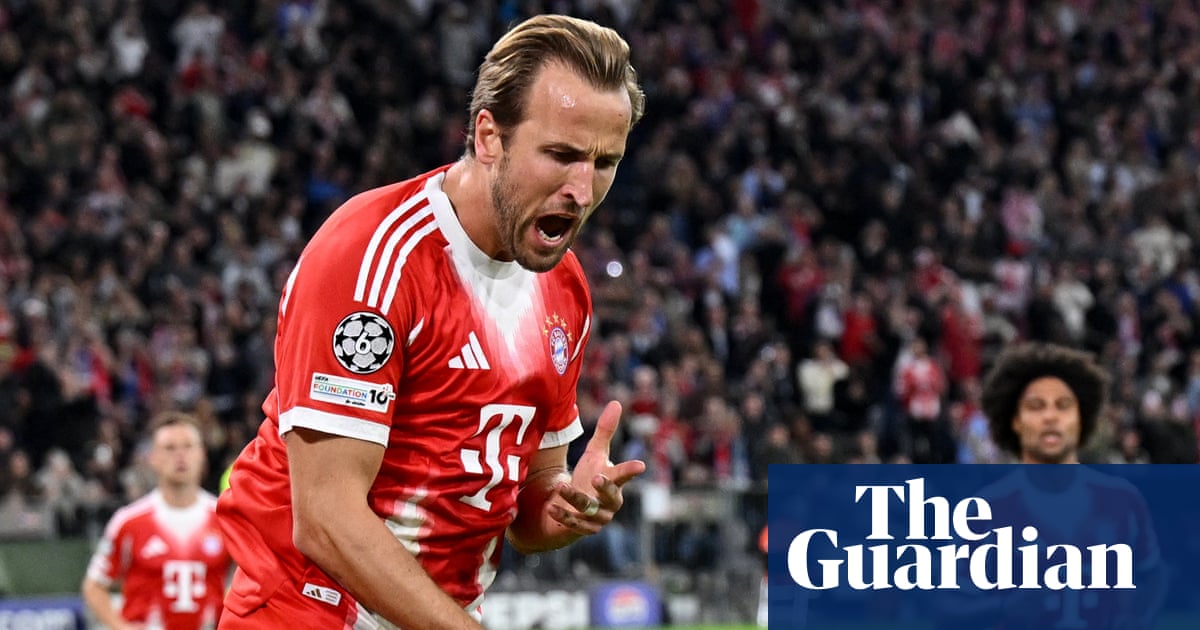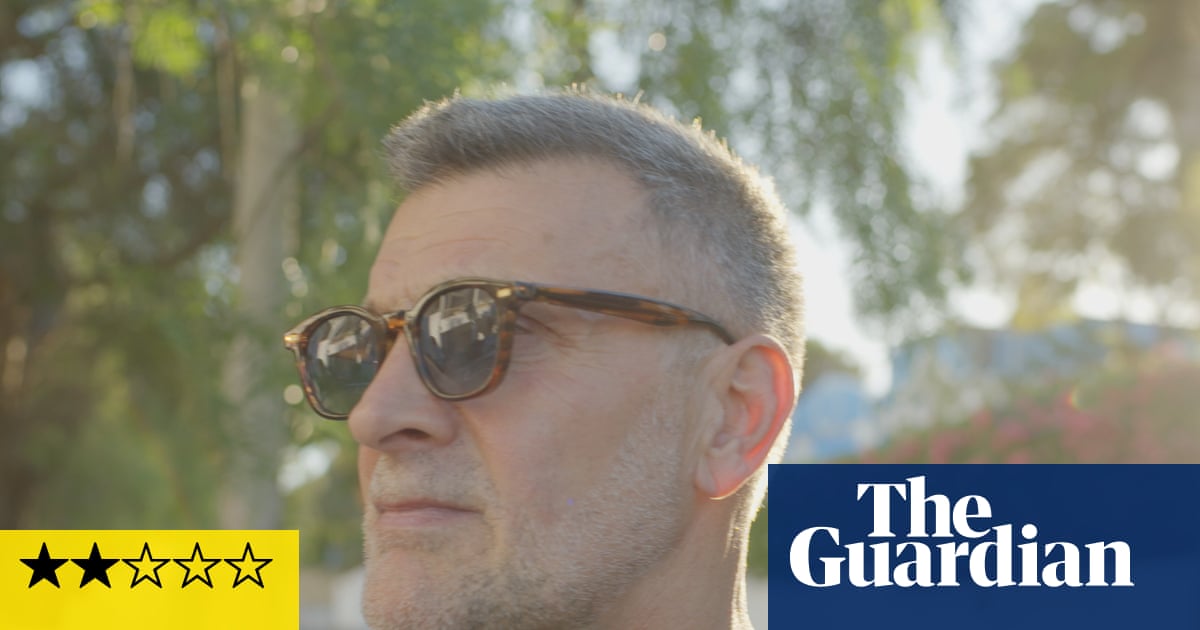One of Casper Ruud’s attributes, beyond his sincerity, his healthy outlook and his devastating topspin forehand, is his ability to clap back. Ruud, like others, spends ample time lurking on social media for news, where thousands express an opinion about how he plays or what he says. He is not above a sarcastic response. “Sometimes I have to keep myself from answering someone or commenting on something,” he says, laughing.
Across numerous conversations during the clay-court season, his favourite part of the year, Ruud’s social media presence comes up repeatedly. Last year, for example, the 26-year-old Norwegian found himself in a lengthy debate with a random X user on the merits of mental coaches. Considering how composed and rational he often appears, it prompted the question of exactly when he was not so cool-headed and needed the services of a psychologist.
That time, he said, came between the ages of 15 and 22 as he navigated homesickness in his early travels and prepared for his new life as an elite player: “When I was young, I would throw the racket too much,” he said. “I would cry and scream and complain about everything.”
What Ruud did not know, or perhaps was not quite ready to admit then at the beginning of the clay-court season in Monte Carlo, was that he actually desperately needed psychological help at that exact moment. By the Madrid Open last month, he had fallen to No 15, his lowest ranking in four years, and he slowly understood that he was mentally burnt out: “I felt a bit like I was running in a hamster wheel that never got anywhere,” he said.
In order to move forward, Ruud first needed to take a step back and stop pushing through his struggles. He made contact with that same Norwegian coach from his youth, trusting him with his inner thoughts and seeking counsel on how to manage them. Things changed quickly.
By the end of the Madrid Open, Ruud was standing atop of the podium as aMasters 1000 champion for the first time: “I didn’t necessarily always think that I would need help in that way, but I quickly realised that I benefited from it, and it was a smart move by me to open up to someone and get help and have different thoughts and views on things. I’m happy and proud that I kind of dared to seek help and realised that that was necessary for me,” he says.
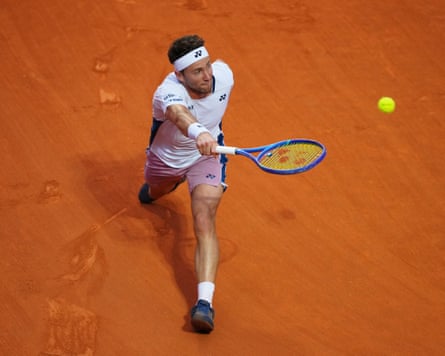
It is easy to forget just how much Ruud has achieved in his short career. A former world No 2, he reached the French Open final in 2022 and 2023 followed by a semi-final last year. He finished runner-up at the 2022 US Open, where he and Carlos Alcaraz played for the No 1 ranking, and has won 13 titles. At a time when Jannik Sinner and Alcaraz are leading the pack, however, Ruud and his contemporaries are still just trying to keep up. Dominic Thiem and Daniil Medvedev remain the only male grand slam champions born in the 1990s.
Although Ruud believes his generation will win more majors, he acknowledges the theory that the scar tissue his generation accrued from repeatedly losing to Novak Djokovic and Rafael Nadal in the biggest tournaments still affects them today. After spending his childhood watching those two and Roger Federer, it was initially difficult for him to imagine ever being able to compete with them.
“You have this tremendous respect from your childhood, growing up watching them on TV, week in, week out,” he says. “Then you’re there yourself and thinking: ‘These guys have done it hundreds of times before. What am I going to do to challenge them that they haven’t faced already?’ So I don’t know. Maybe it could be this. Maybe it could be like, mentally, that it’s a little tough barrier to break, but all in all, [the 2000s generation] has been successful because they play better tennis.”
Considering many players are emotionally crushed by every single defeat, Ruud’s optimistic approach is notable. In Rome, he provided a glimpse into his psyche as his nine-match winning streak ended with a 6-0, 6-1 evisceration by Sinner in the quarter-finals. Thirty minutes later, Ruud shrugged off the heavy defeat with a smile: “It doesn’t feel so bad, honestly,” he said. “I think it was more fun than anything, even though I lost 0 and 1. You just look at the guy and say: ‘This is, kind of, next-level shit.’”
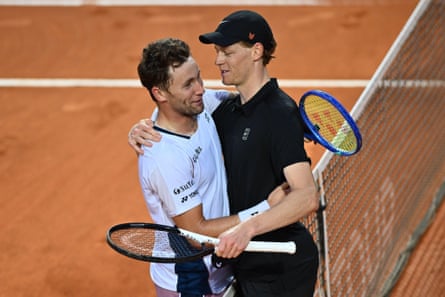
Not everybody enjoyed this reaction. For some, this was an example of a losing mentality, the type of attitude that serial winners such as Djokovic or Serena Williams would never adopt. But this approach has been key to Ruud’s success, always allowing him to accept his trials and continue working hard towards overcoming them. Although he may lack a single-minded ruthlessness, his mental perspective has enabled him to build a stellar career. He is certainly not an underachiever.
Ruud’s understated demeanour often lends him to be characterised as shy and quiet, but he is also strikingly honest. In recent months, he has opined on sportswashing, noting that he had chosen not to play in Saudi Arabia despite receiving offers to compete there, but he believes its growth is inevitable. He considered leaving Norway after tax rises in the country and has been critical of Norwegian politicians on social media, drawing scorn and disapproval back home. He has had to accept the scrutiny his opinions receive.
“That’s kind of the danger of it,” he says. “Because whenever you say something, or have some kind of public opinion on something, someone will definitely say something about your opinion again, and then you can always answer back to their opinion. So it’s like a never-ending thing.
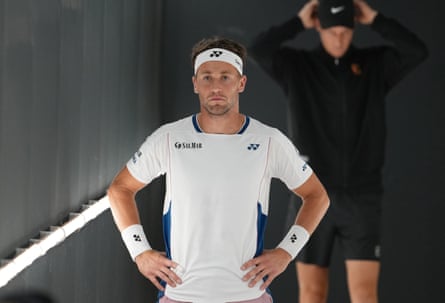
“But in the last few years, travelling, seeing many different cultures, I have developed an interest for certain things within politics. And I’ve been honest when I’ve been asked about it. I’ve also kind of put myself in the position, especially when it comes to certain things in the Norwegian political debate, because I’ve had opinions publicly on social media. I’m always going to try to give an honest answer.”
When the hamster wheel becomes too arduous, Ruud distracts himself with his hobbies. His love of The Weeknd prompts a lengthy, enjoyable story about the origins of his fandom, which was established one day long ago in the back of a car after tennis practice when a friend of a friend introduced him to the Canadian singer after years of settling for Katy Perry and Justin Bieber on the radio. Ruud is also an excellent golfer and plays around the world.
In Madrid, he left a conversation with another golf obsessive, Andy Murray, astonished by the Briton’s commitment to his new sporting pursuit: “I think Andy is extremely determined. He told me one of the other days he spent, like, six hours on the driving range working – repeating, repeating. I’m surprised that he doesn’t get blisters. Maybe he does and just keeps playing. I definitely do need to get a round in with Andy, maybe during Wimbledon.”
For his part, Ruud has never spent more than two hours on the golf range. Perhaps that will change in the future when the time comes for him to retire and he needs an outlet for his competitive drive, but for now he has enough on his plate as he continues his efforts to be the best player possible while keeping his mind on the process.

 3 months ago
85
3 months ago
85
